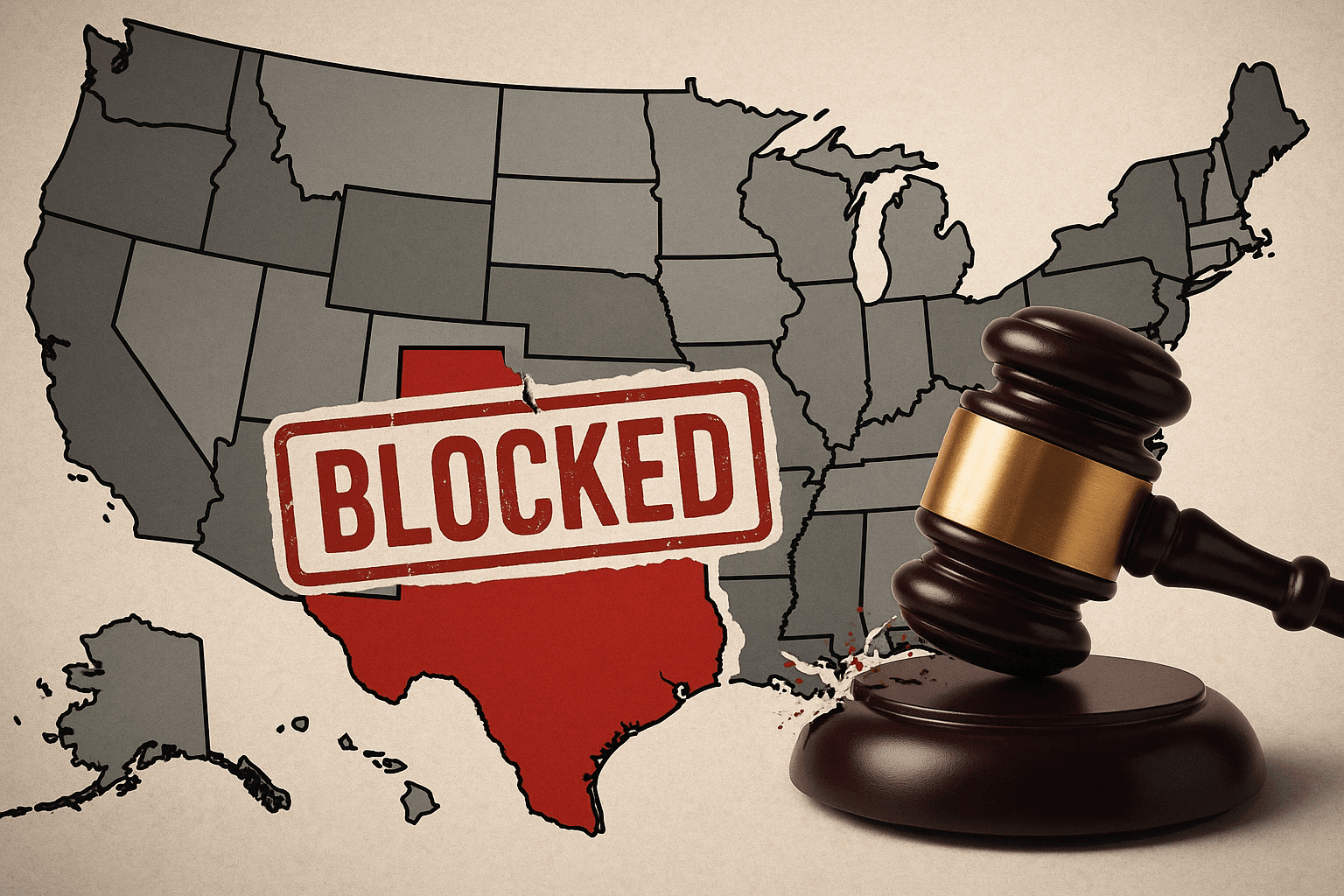Texas GOP Wants AG to Police Local Elections -- Here's Why People Are Concerned

AUSTIN, Texas - A familiar fight resurfacing in Texas politics: who gets to decide when election-related crimes should be prosecuted — the local district attorney, whose office sits in the community, or the state attorney general in Austin?
The short version: after a years-long legal tug-of-war, the Texas Legislature is again weighing legislation that would restore the attorney general’s power to investigate and, in certain circumstances, prosecute election-law violations that local prosecutors decline to pursue.
Supporters say it’s about holding corrupt officials accountable. Critics say it puts a politically powerful office in the business of supervising — and potentially overriding — locally elected prosecutors, and that could chill community voting efforts.
A quick backstory. The controversy traces to a high-profile case that began when local prosecutors in Jefferson County declined to bring charges related to alleged campaign finance violations. The Texas attorney general’s office stepped in, convened a grand jury in another county, and indictments followed.
The case eventually landed at the Texas Court of Criminal Appeals. In December 2021, the court pushed back: it held that the Legislature could not lawfully give the attorney general unilateral authority to initiate prosecutions in district and county courts. This decision undercut the AG’s ability to step into local election matters without following a different, constitutionally permissible path.
Fast forward to the present special legislative session that began in late July 2025: Rep. Andy Hopper filed House Bill 98 and a proposed constitutional amendment to address the court’s ruling.
The bill would let judges disqualify a local prosecutor who “consistently refuses or declines to prosecute” election-law violations and then allow the attorney general to step in. Gov. Greg Abbott put a constitutional amendment to clarify the attorney general’s authority on his special-session agenda, and the Legislature has filed bills and a joint resolution that would permit the attorney general to act in limited circumstances.
Supporters — including Attorney General Ken Paxton and many Republican lawmakers — frame the issue as one of accountability. Their pitch is that when a local district attorney refuses to act against election fraud or corruption, the state needs a backstop. If the goal is to prevent elected officials from using their office to cheat or intimidate voters, they argue, empowering the AG is a necessary check.
Opponents, including Texas Democrats and civil-rights and voting-rights groups, warn that the proposals could intimidate voters and undermine local prosecutorial independence.
Latino civil-rights groups and voting-rights advocates have accused recent statewide election probes and search warrants carried out by the attorney general’s office of disproportionately targeting Latino community leaders and volunteers — charges the attorney general’s office denies. Critics say expanded prosecutorial authority could chill community-based voter turnout work.
There’s also a local-sovereignty argument here. Traditionally, district attorneys are accountable to voters in their counties and generally set prosecutorial priorities based on local circumstances. Sharply empowering the state AG to second-guess those decisions shifts that balance, and opponents worry it will weaken the community’s voice in how laws are enforced.
This is happening fast. The first special session has just adjourned, and the second special session begins today. Governor Abbott issued a proclamation identifying 19 agenda items for Special Session #2 that include this legislation. Any constitutional amendment would then have to go to voters. If passed in statute, the proposed changes would take effect September 1, 2025.
So, what should you watch for in the coming weeks? Look for whether the House bill advances out of committee, whether a constitutional amendment clears the Legislature, and how vocal local prosecutors and civil-rights groups are at public hearings. Also watch for messaging from the governor and the attorney general: how they frame “accountability” matters — is it a neutral legal fix or a partisan weapon?
Bottom line: this debate is about more than technical legal authority. As lawmakers tinker with the levers of enforcement, the stakes are both legal and deeply political — and they’re worth paying attention to, whether your home county is blue, red, or somewhere in between.
About The Authors
Folakemi Elekolusi is an undergraduate at the University of Texas at Austin and a fellow at Better Choices for Democracy. Her coauthor, Carah Ong Whaley, is executive director at Better Choices for Democracy.







